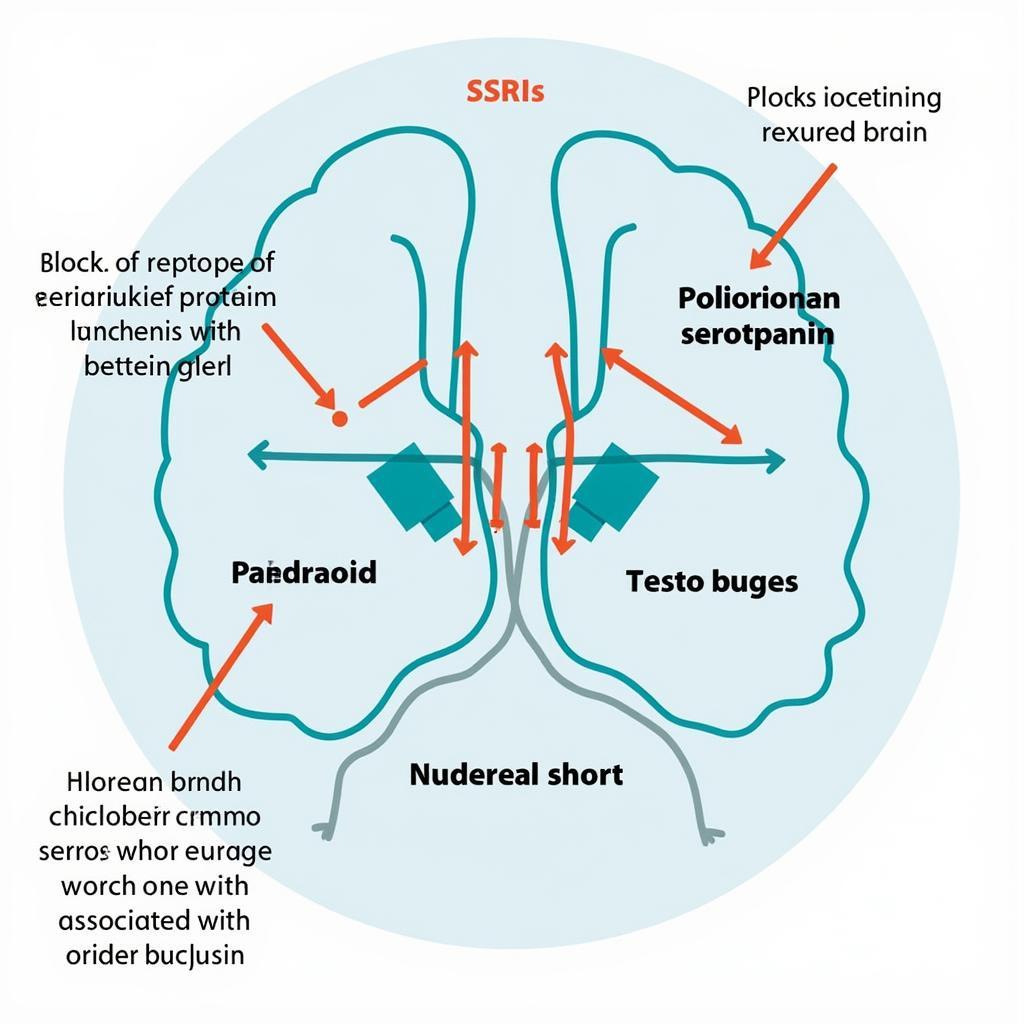ASEs with SSRIs, or adverse sexual effects associated with selective serotonin reuptake inhibitors, are a common concern for individuals considering or currently taking these medications. SSRIs are frequently prescribed for depression, anxiety, and other mental health conditions, but their potential impact on sexual function can be a significant factor in treatment adherence and overall well-being. This article delves into the various aspects of ASEs with SSRIs, providing valuable insights and practical guidance for both patients and healthcare professionals.
Exploring the Connection Between SSRIs and Sexual Dysfunction
The link between SSRIs and sexual dysfunction is well-established. These medications can affect various stages of the sexual response cycle, including desire, arousal, orgasm, and satisfaction. While the exact mechanisms underlying these effects are complex and not fully understood, it’s believed that SSRIs’ influence on serotonin levels plays a crucial role. Serotonin, a neurotransmitter involved in mood regulation, also has an impact on sexual function. By increasing serotonin levels, SSRIs can inadvertently disrupt the delicate balance necessary for healthy sexual response.
 SSRI Mechanism of Action
SSRI Mechanism of Action
Common ASEs Associated with SSRIs
ASEs associated with SSRIs can manifest in various ways, impacting both men and women. Common ASEs include decreased libido, difficulty achieving orgasm (anorgasmia), delayed ejaculation or inability to ejaculate, erectile dysfunction, and reduced genital sensitivity. These effects can vary in severity from mild inconvenience to significant distress, potentially affecting relationships and overall quality of life.
Addressing ASEs: Strategies for Management
Fortunately, there are strategies for managing ASEs associated with SSRIs. Open communication with your healthcare provider is crucial. They can help assess the severity of the side effects and explore potential solutions. Options may include adjusting the dosage, switching to a different SSRI, or adding another medication to address the specific sexual dysfunction. Non-pharmacological approaches, such as lifestyle modifications, therapy, and communication with partners, can also be beneficial.
The Importance of Open Communication and Patient-Centered Care
Discussing sexual health can be sensitive, but open communication with your healthcare provider is essential. Don’t hesitate to express your concerns and ask questions about potential ASEs. A patient-centered approach to care involves shared decision-making and finding the best treatment plan that balances the benefits of SSRI treatment with the potential impact on sexual function. Remember that addressing ASEs is a crucial part of ensuring overall well-being and treatment success.
Can lifestyle changes help manage ASEs with SSRIs?
Yes, incorporating healthy lifestyle changes like regular exercise, stress reduction techniques, and a balanced diet can sometimes improve sexual function.
What are some non-medication options for addressing sexual dysfunction caused by SSRIs?
Therapy, particularly sex therapy or couples counseling, can be helpful in addressing the emotional and relational aspects of sexual dysfunction.
Navigating ASEs: Empowering Patients with Knowledge and Support
Understanding the potential for ASEs with SSRIs is crucial for making informed decisions about treatment. This knowledge empowers patients to actively participate in their care and advocate for their needs. Seeking support from healthcare professionals, therapists, and support groups can provide valuable resources and guidance in navigating these challenges.
In conclusion, while ASEs with SSRIs are a potential concern, they can often be managed effectively with appropriate interventions. Open communication, patient education, and a collaborative approach to care are essential for ensuring that individuals can benefit from SSRI treatment without compromising their sexual health. Understanding ASEs with SSRIs allows patients to take an active role in their treatment journey and work towards achieving optimal well-being.
FAQ
- Are all SSRIs equally likely to cause sexual side effects?
- How long do ASEs with SSRIs typically last?
- Can ASEs with SSRIs be permanent?
- Are there alternative medications for depression and anxiety that are less likely to cause sexual side effects?
- What should I do if I experience ASEs while taking an SSRI?
For any further assistance, please contact Phone Number: 0369020373, Email: aseanmediadirectory@gmail.com or visit us at: Ngoc Lien Village, Hiep Hoa, Bac Giang, Vietnam. We have a 24/7 customer support team.
